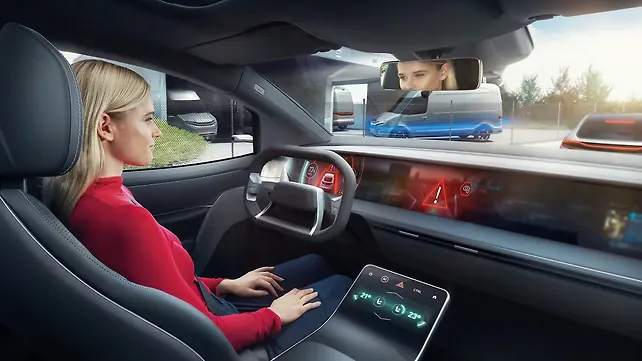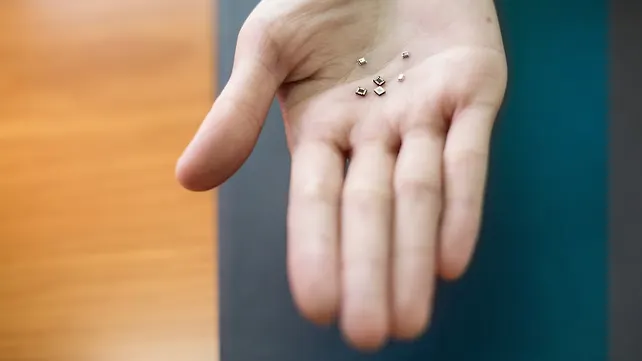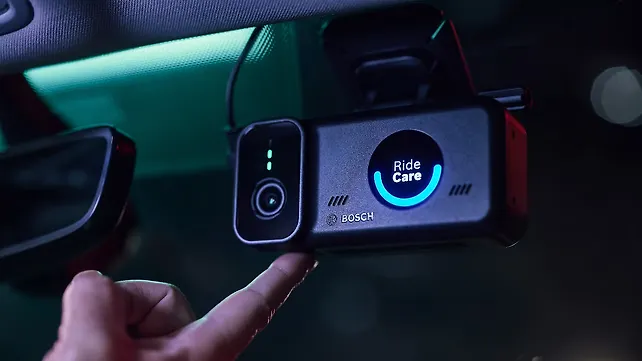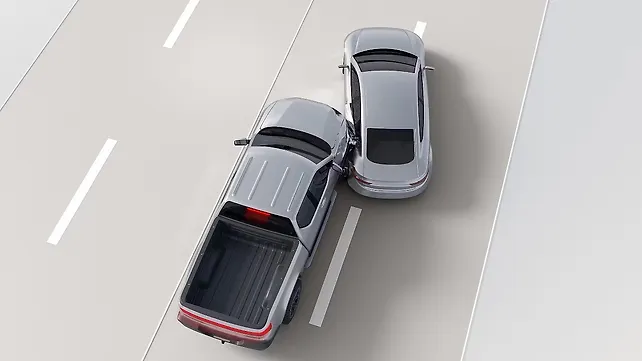
At the ongoing Consumer Electronics Show in Las Vegas, Bosch – the leading global engineering and technology company – has focussed on and showcased what is quite omnipresent in current times. Talk about vehicles, smartphones, fitness trackers or headphones, smart sensors are making life safer and more convenient. In fact, they are considered to be the backbone of the connected world.
A pioneer and market leader in microelectromechanical (MEMS) sensors – one of the most important and widely used sensor types today – Bosch today delivers sensors to every second new smartphone worldwide, for display rotation, orientation in virtual reality applications, and navigation.
Eyes Of Future Cars
Bosch started to produce MEMS sensors in 1995, but the demand for these sensors picked up speed five years back. And today, Bosch has produced as many of these sensors in the past five years as in all the years before that.
In total, the company has produced over 18 billion MEMS sensors till date with an average of 22 MEMS sensors going into every car. By 2027, global annual demand for these sensors is expected to grow from 33.5 billion now to around 49 billion units, and Bosch expects not just a handsome share in this growth, but a significant increase in production too in the years ahead.

From a mobility megatrends perspective, in addition to playing critical roles in connected and electrified mobility, sensors are considered indispensable for autonomous, self-driven vehicles of the future. As Bosch explains it, sensors are the “eyes” with which cars can “see” and understand their surroundings. The company already offers a range of radar, lidar, video, and ultrasonic sensors for automated driving.
Speaking at CES, Tanja Rückert, Member of the Board of Management, Robert Bosch GmbH said the company is investing heavily in its wafer fabs facilities in Dresden and Reutlingen in Germany to meet growing demand. As part of its investment plans, Bosch will invest €3 billion by 2026 in its semiconductor business, and thus also in sensor development and manufacturing.
The RideCare Companion
At CES 2023, the German behemoth also presented several new sensor-based innovations for mobility – including the RideCare companion solution. Bosch says the RideCare companion will play a critical part in the enhancement of safety for all vehicle occupants in connected and automated mobility.

The connected hardware and software solution consists of a camera, a wireless SOS button, and cloud-based data services. Vehicle drivers can use it to contact Bosch associates around the clock should an accident or other dangerous situation occur. In the event of an incident, the Bosch associate can look into the vehicle via camera, assess the situation, and, if necessary, quickly request assistance. The RideCare companion serves as a valuable safety net, especially for cab or ridesharing drivers, claims Bosch.
In addition, off-zone crash detection also promises greater safety on the road – the system protects vehicle occupants in the event of side collisions, which often occur when changing lanes or crossing intersections. Bosch says smart sensors, when combined with a new software algorithm quickly and reliably, detect the exact angle of impact in the event of a side collision and trigger the life-saving airbag in time to mitigate the consequences of an accident.
Mike Mansuetti, President, Bosch North America said the off-zone crash detection is a great example of how software is used to get more out of existing hardware. This creates an appreciable additional benefit in road transport, he said.

Future Of Sensors – Quantum Sensors
As the sensor technology continues to evolve, Bosch believes quantum sensors will be one of the emerging fields of innovation in the years ahead. They could soon enable measurements that are 1,000 times more precise than those of today’s MEMS sensors, says the company. This would, for example, permit easier and more accurate diagnosis of neurological diseases, says the company.
To drive the commercialisation of quantum sensors and develop this market, Bosch founded its own start-up last year. “In the next three years alone, we will be investing €10 billion in Bosch’s digital transformation. Our current workforce of 40,000 software engineers will also grow,” Rückert said at CES.
At Las Vegas, Bosch also presented other innovations that promises long-lasting and widespread impact across sectors. One such innovation is the world’s smallest particulate matter sensor that claims to revolutionise air quality measurement. This noiseless, fanless, and maintenance-free sensor provides accurate data, claims the company, and is 450 times smaller in volume than alternatives, thus enabling use in ultra-compact IoT devices.
Also Read:
Mercedes-Benz An Inch Closer To Full Autonomy With Bosch
Bosch Drafts New Script For India Localisation Drive